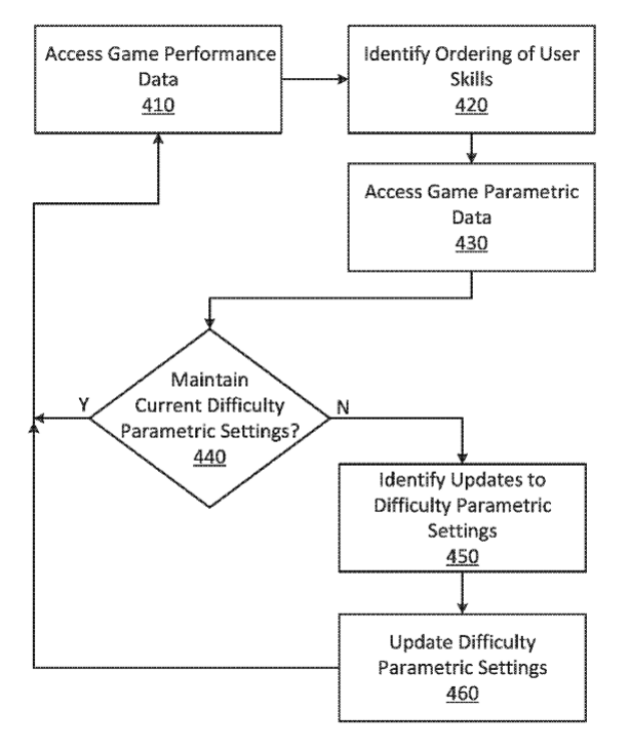Isolation may be detected in future games.
A new patent suggests that Sony games in the future may be able to make subtle adjustments to difficulty as you play. Sony would not be the first to adjust game difficulty on the fly, but the proposed patent does contain some unique elements. Selecting a difficulty level in some games can be a big decision, locking you into a particular experience for dozens of hours.
Sony refers to this process in the patent application as “Adaptive Difficulty Calibration.” The invention has been submitted to the World Intellectual Property Organization (WIPO) and covers a technique by which a game can assess the player’s performance and modify the game complexity.
The mechanism outlined in the patent would be more subtle than the ones we have seen in games for decades, which typically offer to change the difficulty level when the player keeps failing to advance. For instance, several of Nintendo’s Mario games will offer to switch you to an easier option if you keep falling off ledges.
Your performance in an adaptively difficult Sony game will be compared to a baseline, and if you are performing significantly better or worse than the game anticipates, it will make adjustments to the gameplay to keep the challenge fresh. This is not a binary decision, though; Sony suggests modifying certain aspects of the gameplay, such as movement speed, hesitation or delay, character strengths, the number of opponents, and more.

Basically, what Sony wants is for games to be able to adapt their difficulty mode based on how you play. Ideally, this process should be ongoing throughout the game, changing the level of difficulty dynamically as you advance. Adaptive difficulty could theoretically address two common issues in challenging games: the beginning of the game can often be a little overwhelming, and the endgame can often be too easy once you have unlocked everything.
Though it is unclear if Sony will be granted a patent for this feature—it will have to contend with the long history of adjustable difficulty modes in games—the patent application was filed with WIPO last year and was only published this month. Even if the patent is denied, this could be a sneak peek at what Sony has planned for future game consoles—it will need to make up for losing access to all those future Activision Blizzard titles, and a temperature-changing controller probably is not going to do it.

